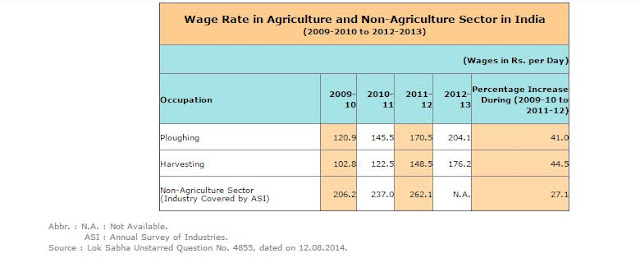Worried about ordinance : The Farmers (Empowerment and Protection) Agreement on Price Assurance and Farm Services Ordinance, 2020-II
In the previous article, we discussed the point mention in The Farmers (Empowerment and Protection) Agreement on Price Assurance and Farm Services Ordinance, 2020. We will continue the previous discussion.
1) Seeds
Before continuing the previous discussion, let's discuss about Protection of Plant Varieties and Farmers' Rights Act, 2001. The main aim of this act was to protect the plant varieties, the rights of farmers, and plant breeders so that they can be encouraged to develop new varieties of plants. This is very important as it upholds the farmers' right to save, use, exchange the seeds as well as gives the right to claim special forms of intellectual property rights over their varieties. Now keep this thing in mind and discuss the experience of contract farming in India. The potato contract farming by Pepsico in Hoshiarpur District of Punjab mentioned the following terms and conditions:
- Parent seed of a certain variety, which is the exclusive property of Pepsi Foods Limited,shall be provided by Pepsi Foods Limited.
- It is agreed between the parties that the total potato produced by the grower shall always be the property of Pepsi FoodsLimited. Further, provided that the seeds, the plants sprouting from the seeds, and all other parts will remain the exclusive property of Pepsi Foods Limited.
And that's a problem. The seed is the main part of the production. Losing a right over the seeds is very dangerous. We have witnessed a long battle for rights over seeds and farmers are still fighting big companies like Monsanto. The Farmers (Empowerment and Protection) Agreement on Price Assurance and Farm Services Ordinance, 2020 doesn't exclusively talk about this issue.
2) Intermediaries, middlemen
The proponents of this act (and contract farming) argue that this new farming mechanism will remove the middlemen and will directly buy the agricultural commodities from farmers. But is it really possible for big companies to establish direct contact with farmers? Singh (2006) finds that in Thailand, contract farming was dominated by brokers. In Thailand, companies prefer to employ a broker instead of working directly with farmers and farmer groups. There is no much difference between broker and middlemen. Like middlemen, the broker is only between farmers and companies (buyers). In some cases, companies exclusively deal with brokers only. Figure no. 1 can help to understand the structure of contract farming in Thailand. Markfed (Punjab State Cooperative Supply and Marketing Federation Limited), a cooperative engaged in contract farming in the Hoshiarpur District of Punjab, was dependent on the middlemen for the contract as well as for procurement (Singh, R. (2009)).
Therefore no reform will ensure the middlemen free agricultural system.




Why the government not collecting farmers crops on MSP given by government... why they not increasing the government storages ...for resolving problem of sufficient space ...
उत्तर द्याहटवाFor contract based farming ...if the market price is more than the price fixed with contractor then there is loss of farmers ..!
And if farmers sold their crop without informing the contractor then who will be responsible..?
And if middle man ( as you mentioned ) selling farmers crops to company's with more prices? ... Government not doing anything for farmers..!